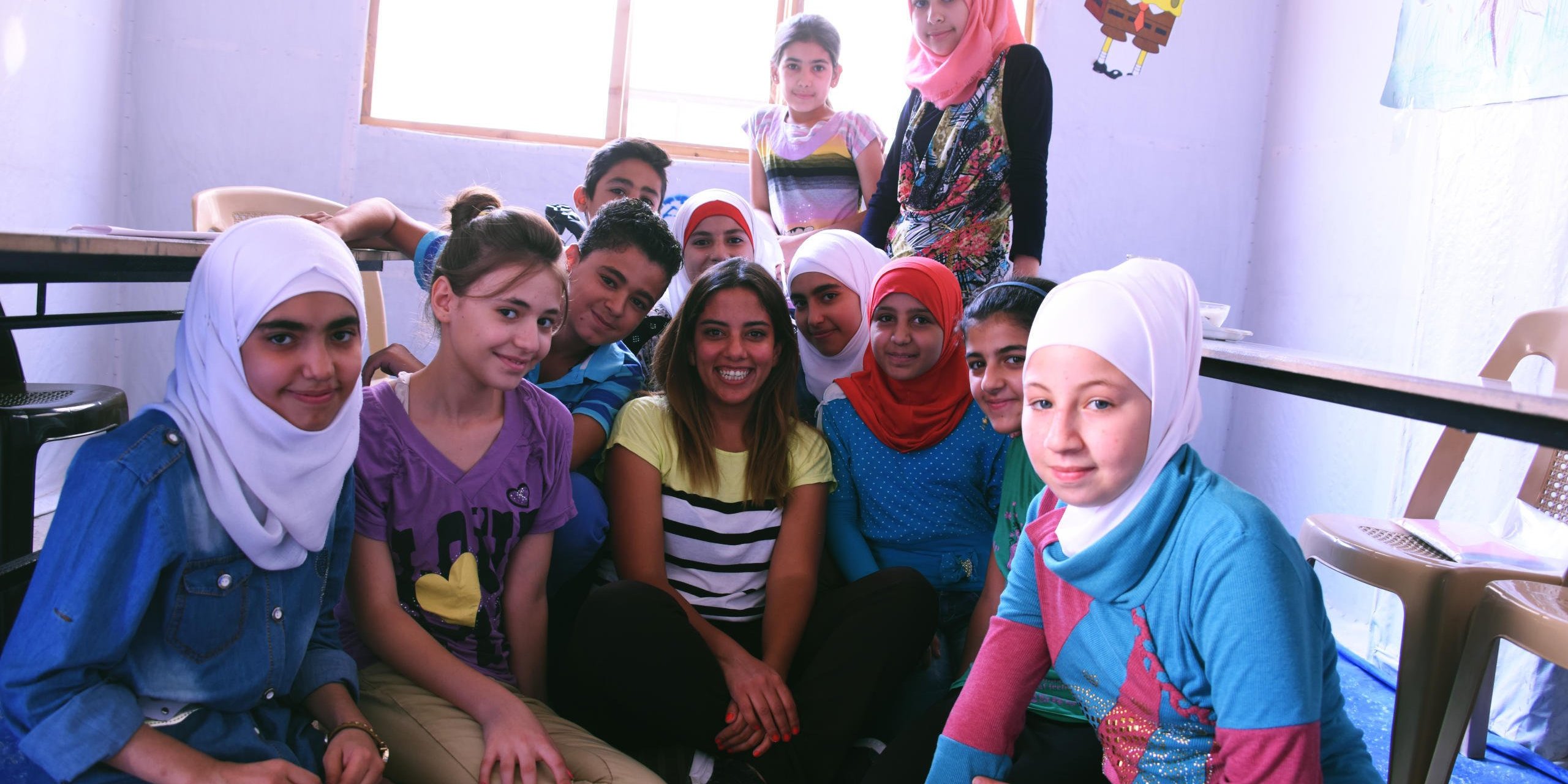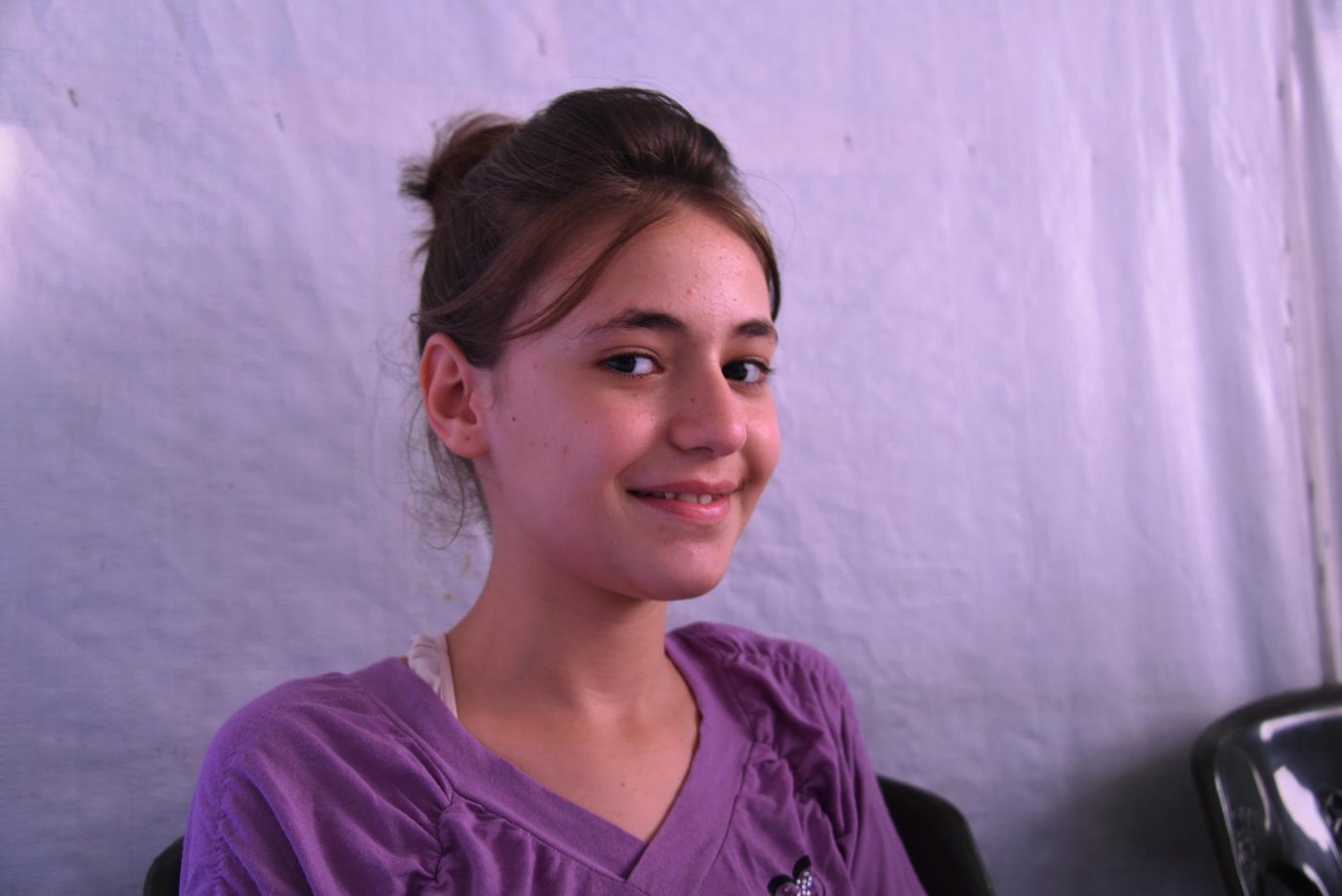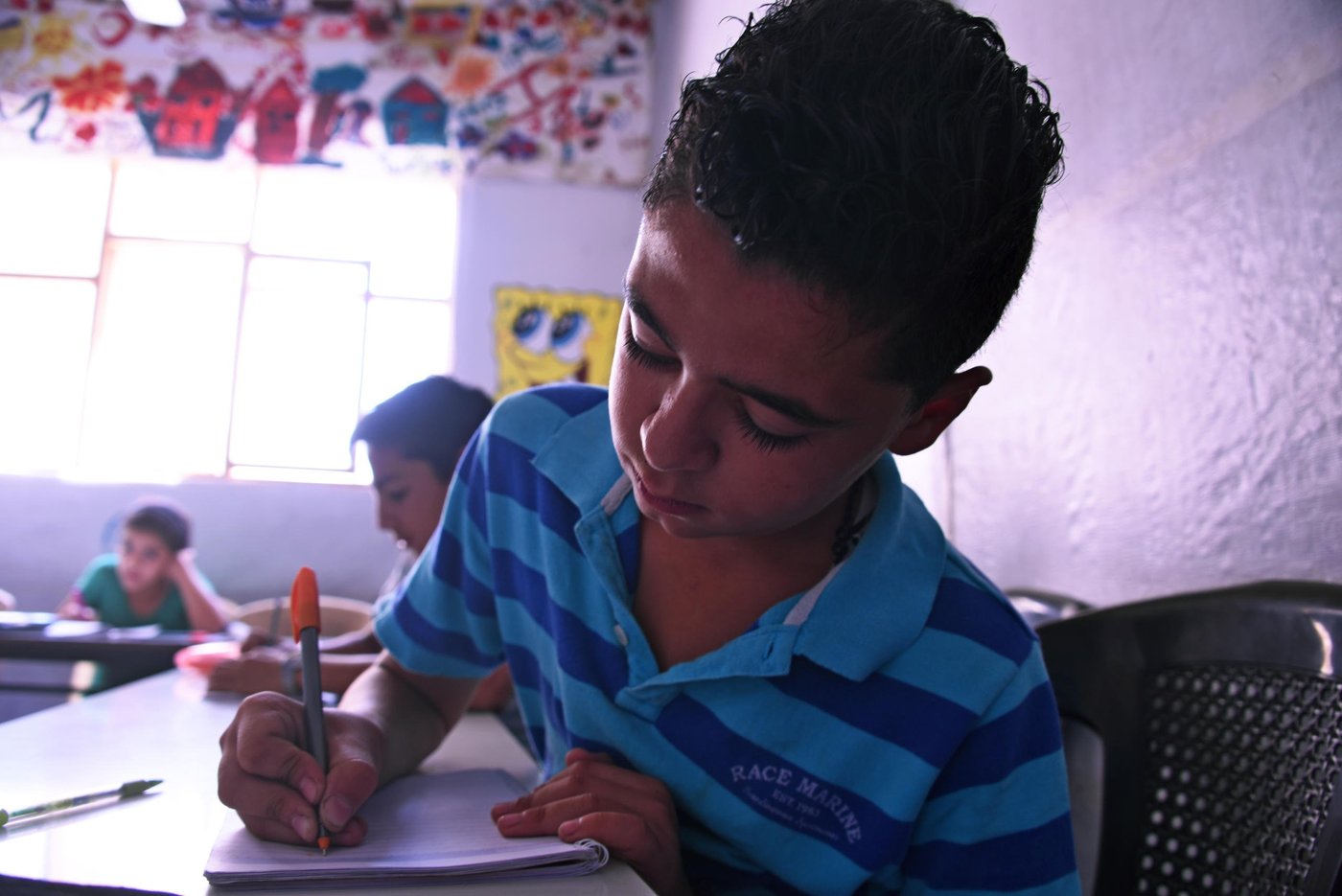
Giggles and singing fill the children’s centre in an unfinished building in Sahnaia, on the outskirts of Damascus. At the “House of Love” centre, volunteer women from the community come to teach children from across Syria. Some have not been going to school for years and the women are helping them catch up on their missed education. The centre is supported by the Norwegian Refugee Council (NRC).
“Some thought the war would last only one year and then they would go back to their area, but it continued, and so the education crisis started,” says Sahar al Hayek, one of the founders of the centre. “Some of them are working and cannot attend formal classes. Children at the age of 13 and 14 are working because they have no other income. Their parents do not work. This is why they dropped out of school.”
One in five schools destroyed
Inside war-torn Syria every fifth school has been destroyed. In addition to the more than two million school children inside Syria who have no school to go to, Syria's neighbouring countries are hosting close to one million Syrian refugee children who are also out of school. This number is increasing by the day.
“If we turn our backs on these children, the consequences will be disastrous. More children will be at risk of being recruited as child soldiers, subjected to sexual violence, end up as child labourers or as child brides. We will rob them of hope for a better future,” says Therese Curran, education adviser for NRC Syria.
NRC provides the students with backpacks and teaching materials, trains teachers and gives administrative support to the association.
“Most of the students here are displaced,” says Rawya, who teaches English at the school, “some of them have been unable to go to school for one to two years.”

Fled from raids and shelling
Alaa, 14, comes from Daraya, a suburb of Damascus. Three years have passed since she fled her home together with her mother, father and seven siblings.
“We left because there were a lot of raids and shelling in our area. The road was difficult. First, we went to Lebanon and then we came here,” says Alaa.
She attends the catch-up classes to learn and strengthen her knowledge. Back in Daraya, Alaa used to study English, Arabic and Mathematics.
“I like the Arabic language the most,” she says, “I like it because it is easy and the teacher explains it well.”
After having spent one year in Beirut, the capital of Lebanon, Alaa and her family went back to Syria. Conditions for refugees in Lebanon are extremely difficult: their movements are restricted and they have a hard time making a living.
“It was difficult to live in Beirut. We do not know anyone there. So we returned here to Syria, where my whole family is,” says Alaa.
Alaa and her family returned to Syria to be with their relatives. After a while, three of her siblings travelled to Germany. Alaa stayed in Syria with her family.
Back in school
Alaa is happy to be back in school.
“I did not go to school in Lebanon. I came here and completed my studies,” she says.
“When I grow up, I would like to become a heart surgeon so that I can treat anyone who has heart conditions, to help them,” she says.
Alaa hopes that all the Syrian children who have escaped their home country will come back once the crisis is over.
“I hope that each one returns to their home, so that we can see our friends, and we can talk about the old days,” says Alaa.

Wants to help rebuild the country
“In acute and persistent crises, youth are often overlooked by the humanitarian community. Often, they are seen as a challenge rather than an opportunity. This is completely misguided, because young people who receive support and are activated, can contribute to positive change and the reconstruction of society,” says education adviser in NRC Andrea Naletto.
Mohammed, 14, is a Palestinan boy who used to live in the Yarmouk refugee camp for Palestinian refugees in Damascus. His family left Yarmouk six years ago and came to Sahnaia, where he attends the catch-up classes.
“I like the way they treat us here,” he says, “There is no one else who can teach us. It is the only charity centre opened for everyone so we can learn for free.”
He likes going to school.
“Arabic is my favourite subject because I can understand it. It is our language.”
Whoever is able to do something about this, they must do it, because the future of Syria will not be better if these generations aren’t educated.Sahar al Hayek, co-founder of the House of love centre
Misses home
“I miss everything about where I grew up. Everything: The neighbourhoods, my friends and relatives,” says Mohammed.
When he grows up, Mohammed wants to become an architect, so he can help rebuild people’s homes.
“I want to help rebuild the country. I want to be helpful, because most of the people here have lost their homes, their country, they’ve lost everything,” he says.
Sahar al Hayek appeals to whoever can do anything to help Syrian children return to the classroom.
“Whoever is able to do something about this, they must do it, because the future of Syria will not be better if these generations are not educated,” says al Hayek.


